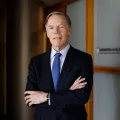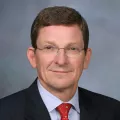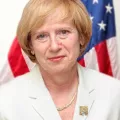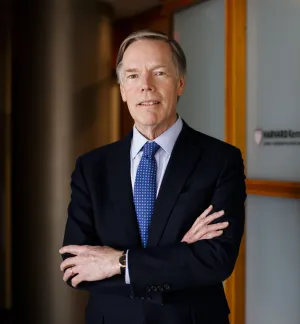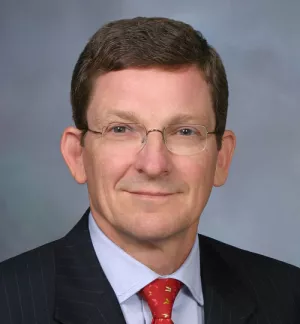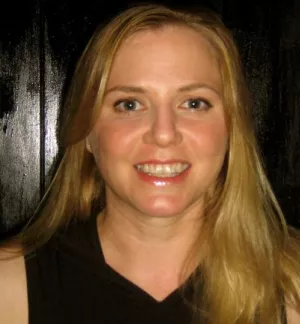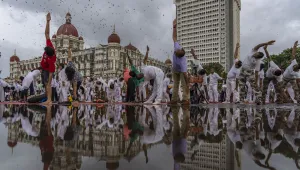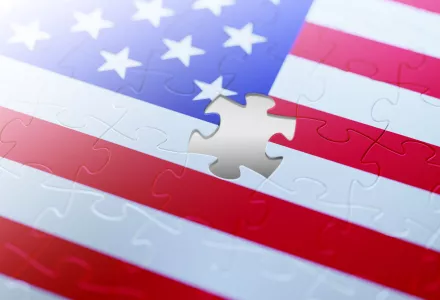
Executive Summary
The United States Foreign Service is confronting one of the most profound crises in its long and proud history. At a time of pandemic, recession, and mounting global challenges, our nation’s career diplomats find themselves without the support, funding, training, and leadership they need to represent the American people effectively overseas and in Washington, D.C.
We argue in this report that the United States needs a strong and high performing Foreign Service to defend our country and advance its interests in the 21st century. That is why President-elect Biden and Congress should launch a major bipartisan initiative to revive, reform, and reimagine the Foreign Service.
Many of the most serious challenges the United States will face in 2021 and beyond will require our diplomats to take the lead. These include the return of great power competition, leading a global response to the pandemic and its consequences, supporting American companies overseas during a devastating recession, mounting a major effort on climate change, negotiating an end to the Afghan and Iraq wars, and helping American citizens in every corner of the world who need the support of their government. Morale in the State Department, however, is at an all-time low and efforts to promote greater racial and ethnic diversity have failed just when the country needs women and men of all backgrounds as our primary link to nearly every country in the world. There are challenges to be met inside the Foreign Service, including an honest self-assessment of the Service’s internal culture.
Just as the United States succeeded in renewing both the military and intelligence agencies in recent decades, we must now do the same for our diplomats and diplomacy.
Under the auspices of the nonpartisan American Diplomacy Project at the Harvard Kennedy School, we met during the past year in 40 workshops and meetings with more than 200 people. They included serving State Department Officers, retired Foreign Service members, foreign diplomats, business leaders, and senior U.S. military officers, including two former Chairmen of the Joint Chiefs of Staff, as well as two former CIA Directors and retired intelligence officials.
We sought the advice of senior Trump administration officials, members of the Biden transition team, former National Security Advisors and Secretaries of State, as well as members of Congress and their staffs from both parties.
In addition, we met more than 800 Americans in virtual conferences with think tanks, the University of Nebraska–Lincoln, and with World Affairs Councils in one national meeting and with chapters in Dallas/Fort Worth, Texas; Peoria, Illinois; Nashville, Tennessee; Cleveland, Ohio; and Boston, Massachusetts.
In every meeting, we listened to, and benefited from, the advice of concerned citizens who agree it is time to elevate diplomacy as a major national priority. To accomplish this, we must reimagine the Foreign Service for the current generation and those to come.
Finally, we hope to honor with this call to action the women and men of the Service who work each day to promote and protect our great nation in difficult and dangerous places around the world. They deserve our full support. The time has come to help them rebuild the U.S. Foreign Service and Department of State.
10 Actions to Reimagine American Diplomacy and Reinvent the Foreign Service
Around the world, the face of the United States is embodied in the women and men of the U.S. Foreign Service. To ensure that we have the most robust and effective diplomatic corps in the world, we recommend these 10 actions:
1. President-elect Biden and Congress should define a new mission and mandate for the Foreign Service, and launch an urgent nonpartisan initiative to reform, rebuild, and reimagine the diplomatic corps.
- Together, the President and Congress should restore the State Department's lead role in executing the nation's foreign policy and reaffirm the role of American Ambassadors overseas as the President's personal representatives.
- They should strengthen budgetary support for the Foreign
Service so that it is the strongest and most able diplomatic corps in the world.
2. Congress should pass a new Foreign Service Act to reshape the Service for the decades ahead and set the highest standards for diplomatic readiness, expertise, and leadership.
- There have been only three such acts in the previous 100 years and the most recent was 40 years ago. A new act would establish a new strategic mandate and mission for a strengthened Foreign Service and guidelines for many of the actions proposed below. A new act, based upon what is best about the 1980 act, is essential to catalyze the transformational change that is needed.
- Just as past Presidents and Congress undertook successful initiatives to renew the armed forces after Vietnam and the intelligence agencies after 9/11 and the Iraq War, a new act could serve as the foundation for a true 21st century Foreign Service.
3. Challenge the Foreign Service to transform its internal culture by incentivizing greater innovation, smart risk taking, individual accountability, inclusive management, and visionary leadership.
- Establish institutional service requirements for promotion to include participation in recruiting, service on promotion panels, teaching assignments at the Foreign Service Institute,
and mentoring. - Instill an ethos of stewardship of the profession of diplomacy by creating a Seniors Panel of all diplomats with the rank of Career Ambassador charged with promoting resilience, readiness, and inclusion for the diplomatic service.
4. Direct a relentless focus on diversity as a first-order strategic priority. Diversity is an essential element of producing high performance. America’s diplomats should be representative of the American people, their values, and their aspirations.
The next Secretary and Deputy Secretary of State must lead this effort. They should:
- Take personal responsibility to achieve this goal.
- Appoint a Chief Diversity Officer and be transparent about progress.
- Seek legislation to establish and fund a large-scale diplomatic ROTC program for under-represented college students seeking a career in the Foreign and Civil Services.
- Eliminate structural and procedural bias within recruitment, entry, assignment, and promotion processes.
- Enforce accountability for diversity, inclusion, and mentoring by
all managers. - Make promotions from junior to mid-level to senior ranks dependent on success in helping to create a more diverse
Foreign Service.
5. Strengthen the professionalization of our diplomats through a vastly expanded career-long program of education and training that focuses on mastery of substantive foreign policy issues, diplomatic expertise, and leadership.
- Seek congressional authorization and funding for a 15 percent increase in Foreign Service personnel levels to create a training float like that maintained by the U.S. military. We recommend an increase of 2,000 positions over three years to meet this goal.
6. Initiate a wholesale overhaul of the personnel system to make it more modern, flexible, transparent, and strategically oriented to future challenges and workforce needs.
- Make multifunctional competence in political, economic, public diplomacy, consular, and management skills the standard for professional success and promotion by eliminating the individual “cones,” which separate Officers into job categories.
- After the 15 percent increase in positions is achieved, launch a four-year commitment to increase the size of the Foreign Service by another 1,400-1,800 positions to fill current and projected staffing gaps.
- Reduce the size of the massive embassies created to support the wars in Afghanistan and Iraq and other large overseas outposts.
- Prioritize development of regional and linguistic expertise through mandatory multiple tours using languages studied.
- Instill more flexibility in personnel policies to address the needs of a globally deployed workforce and their family members.
7. Create a defined mid-level entry program so that the Foreign Service can recruit and employ Americans with critical or unique skills in areas such as technology, science, business, and engineering. This program must have rigorous, transparent, nonpolitical entry and retention requirements, including worldwide availability. It can also be a vehicle to expand the diversity of the Foreign Service and provide for the return of some who left the Service in recent years.
8. Seek legislative authorization and funding for a Diplomatic Reserve Corps, like the military, with annual training requirements and activation commitments. This will create a surge capacity in the event of a national emergency or international crisis and open opportunities for citizens with special skills to support American diplomacy.
- Reservists would provide a positive connection between their communities and the Foreign Service.
9. Create a stronger and more nonpartisan Foreign Service by expanding the number of ambassadorial and senior Washington assignments for career professionals. The Department of State has more Senate-confirmed political appointee positions than any other Executive Branch agency.1 Currently, there is not a single serving career official in the 23 Senate-confirmed Assistant Secretary positions, which is unprecedented in the modern history of the State Department.2
- The next administration should seek by 2025 to:
- Appoint career professionals to 90 percent of all ambassadorial positions.
- Appoint a career professional to the position of Under Secretary for Political Affairs and one of the other four Under Secretaries of State.
- Appoint career professionals to 75 percent of all Assistant Secretary of State positions.
- Mandate these guidelines in legislation to promote a strengthened and more nonpartisan Foreign Service.
- This would bring the Foreign Service into symmetry with the small number of political appointee positions in the senior ranks of the military, the Central Intelligence Agency, and the National Security Agency.
10. Rename the Foreign Service of the United States as the “United States Diplomatic Service” to signal transformation and to reinforce the vital role our diplomats perform in service to our nation. A name that begins with the term “foreign” and ends with “United States” is the reverse of how we should view America’s diplomats.
1 Partnership for Public Service. Political Appointee Tracker, last modified November 9, 2020, https://ourpublicservice.org/political-appointee-tracker/.
2 There are 4 other positions that hold the rank of Assistant Secretary: the Director General of the Foreign Service, the Coordinator for Counterterrorism, the Coordinator for International Information Programs, and the Director of the Foreign Service Institute. Currently only the Director General of the Foreign Service and the Director of the Foreign Service institute are Career Foreign Service.
Burns, Nicholas, Marc Grossman and Marcie Ries. “A U.S. Diplomatic Service for the 21st Century.” Belfer Center for Science and International Affairs, Harvard Kennedy School, November 2020

